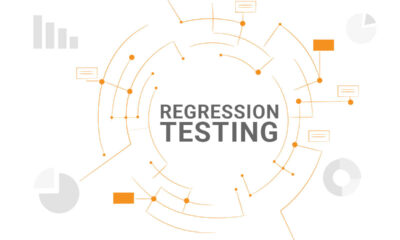Restaurant Revolution: How to Optimize Your Operations for Success
Key Takeaways:
- Challenges and innovative solutions in current restaurant management.
- Technological strategies to improve operational efficiency and customer satisfaction.
- Importance of staff training and strategies for enhancing retention.
- Adopting sustainability as a driving strategy in restaurant practices.
Learn contemporary restaurant management techniques focusing on operational efficiency. Embrace technology for smoother workflows, optimize inventory and staffing, and prioritize customer satisfaction. Adapt to market trends swiftly through data-driven decision-making and flexible strategies. Enhance staff training and communication to ensure cohesive teamwork.

Source: freepik.com
Introduction
Today’s restaurant scene is a vibrant mosaic of traditional service and modern innovation, requiring dynamic management tactics to thrive. The balance between maintaining timeless culinary traditions and integrating cutting-edge technologies is delicate yet essential. Modern restaurants must not only provide exceptional food and impeccable service but also adapt to evolving customer expectations and market trends.
The burgeoning significance of customer retention maneuvers, like personalized restaurant loyalty programs, allows for more engaged relationships with patrons. It is more than drawing in crowds anymore; it is about building a community around the dining experience that connects and grows with the establishment. Effective management is the linchpin of enduring success in the highly fluid and competitive food service industry.
Redefining Restaurant Management in the Digital Age
The digitization of consumer lifestyles characterizes the current era, and businesses must adapt or be left behind. New tools and platforms are emerging to address restaurant management’s unique demands. From online ordering to social media promotions, these digital trends have shifted the paradigm, creating a new model for service delivery and customer interaction.
Restaurants can now gather real-time insights into customer behaviors and preferences, craft responsive marketing campaigns, and tailor menus to reflect the latest taste trends, all while streamlining the logistical aspects of food service operations.
Optimizing the Dining Experience with Technology

Source: freepik.com
Creating an optimal dining experience extends beyond the food on the plate. It encompasses the entire journey from reservation to payment. Technology plays a crucial role in enhancing each touchpoint.
For example, adopting digital menu boards allows customers to explore options and place orders at their own pace, while online reservation systems can reduce wait times and increase table turnover. Contactless payment options further streamline the experience, allowing diners to complete their meals with the convenience and security they’ve come to expect in the digital economy.
Effective Inventory Management Practices
A smoothly running kitchen is at the heart of any successful restaurant, and one significant aspect of this is effective inventory management. It is a balancing act of predicting customer demand while minimizing waste and optimizing food costs.
Based on past sales data and current patterns, restaurant management can use technologies like machine learning algorithms and predictive analytics to predict inventory needs. These practices ensure a restaurant operates within budget and contributes to more sustainable operations by reducing the carbon footprint associated with excess food production and waste.
Employee Training and Retention Strategies

Source: freepik.com
Fostering a proficient and dedicated workforce necessitates prioritizing employee investment via thorough training and clear career progression routes. Recognizing employees as brand representatives underscores their pivotal role in shaping customer interactions. Effective retention tactics encompass offering competitive remuneration, fostering a supportive workplace culture, providing healthcare benefits, and facilitating skill enhancement initiatives.
A robust training framework should encompass technical proficiencies and interpersonal competencies essential for delivering outstanding service and equipping staff with the requisite abilities to excel. By nurturing employee development and satisfaction, businesses cultivate a cohesive and skilled team and elevate customer experiences, fostering loyalty and driving organizational success in the competitive marketplace.
Staying Ahead of the Curve with Market Analysis
Remaining competitive in the restaurant industry hinges on interpreting market signals and translating them into practical strategies. Consistent market analysis is crucial for detecting emerging consumer trends and potential business prospects, such as catering to specialized dietary needs or integrating cutting-edge technologies. This proactive approach enables restaurants to make timely adjustments to their menus, services, and marketing campaigns, setting them apart from competitors and strengthening their foothold in the market.
By staying attuned to evolving consumer preferences and industry developments, restaurants can maintain relevance, innovate, and thrive in a dynamic and competitive landscape, securing their position as leaders in the culinary sphere.
Managing Customer Feedback and Online Reputation
The modern patron often turns to online reviews to gauge quality and service before even setting foot in a restaurant. In light of this, managing online reputation has become essential to restaurant marketing.
Engaging positively with reviews, addressing issues, and showcasing success stories offers a narrative of a business that cares and improves. Effective digital communication, whether responding to comments or sharing behind-the-scenes content, fosters transparency and credibility, shaping customer perceptions and, ultimately, their dining decisions.
The Role of Sustainability in Restaurant Operations

Source: freepik.com
Restaurants play a significant role in promoting sustainability within the hospitality sector. They can lead the charge in reducing environmental impact through initiatives such as using biodegradable packaging, eliminating single-use plastics, and engaging in waste reduction practices.
By integrating sustainability into their brand ethos, restaurants can meet the increasing consumer demand for environmentally responsible dining options and positively impact the global stage.
Future Trends in the Restaurant Industry
The restaurant industry continuously evolves with trends that offer a glimpse into the future of dining. Concepts such as virtual restaurants, artificial intelligence-enabled personalized nutrition, and digital sommeliers suggest a bold fusion of technology and traditional hospitality.
Restaurant owners must keep an ear to the ground and an eye on the horizon to adapt to these changes, ensuring they offer an experience that aligns with the expectations of tomorrow’s diner.
According to the insights provided by Eatery Pulse News, the success of a restaurant in the modern age is intensely tied to how well it utilizes and integrates technology to ensure operational efficiency and customer satisfaction.
Similarly, Restaurant Business Online identifies critical technology trends that can impact restaurants shortly, underscoring the significance of technological agility for continued success in the industry.



















